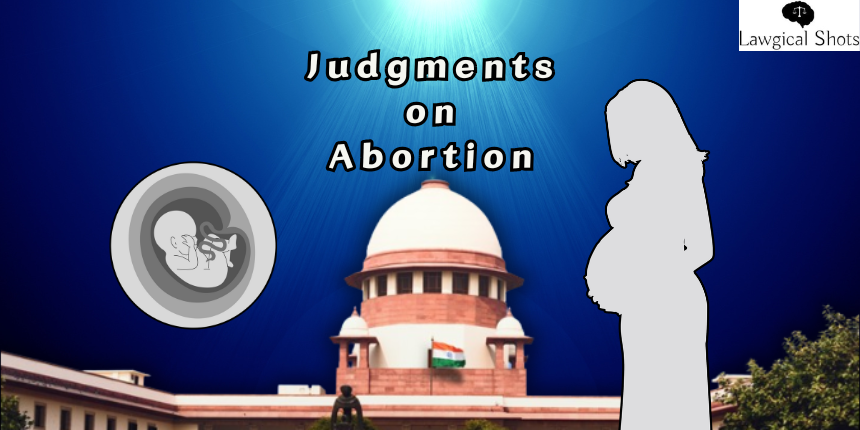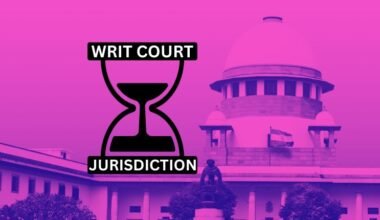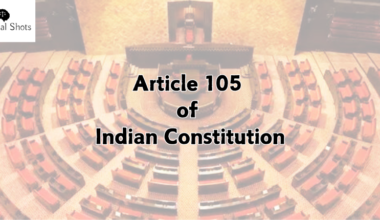Parenthood is a blessing, but it is equally important to understand that it is an individual choice. Some women struggle to get pregnant, while some others need medical assistance to get rid of the child, sometimes due to unwanted pregnancy, other times after pregnancy due to sexual assault. In any case, it is important that the process of abortion or termination of pregnancy is carried out in proper medical care. Otherwise, it leads to the risk of life of the pregnant woman. The cause has been upheld by the Legislature through the Medical Termination of Pregnancy Act, 1971. What’s left by the legislature is decided through Supreme Court judgments on abortion in India for individual cases. Here, we have compiled some of the landmark cases on medical termination of pregnancy dealing with various aspects of abortion. But first, it’s important to know what the law lays, as discussed below.
Pregnancy and Need for Termination
Mother nature has curated different ways for living organisms to reproduce and have offsprings. In humans, the reproduction involves a man and a woman, leading to the formation of a foetus which grows inside the mother’s body. Sometimes, the mother knows about the pregnancy during the first few weeks, however, in certain cases, she may not know even till the time of delivery. That’s how mysterious mother nature can be in different cases. It takes a period of 9-10 months for a human baby to grow and come out of the mother’s body to become a separate being. However, in certain circumstances, the woman may not wish to continue her pregnancy. At this point, medical assistance is paramount.
Abortion under MTP Act
When a woman decides to terminate her pregnancy, it is legally allowed till 20 weeks, and 24 weeks in specific circumstances, with the opinion of Registered Medical Practitioners. The Medical Termination of Pregnancy Act, 1971 governs the circumstances in which medicated abortion or medical termination of pregnancy may be carried out in a safe and secure manner. The Act and corresponding rules also provide for when abortion may be denied, for both married or unmarried women. While the law covers it all, there are specific circumstances in each pregnancy. In certain cases, the parties need to take permission from the High Court/Supreme Court. The Courts in turn need to balance the individual rights with the legal provisions under the MTP Act and allow or disallow the petitions seeking termination of pregnancies. Thus, the balls remain in the Courts’ Court.
Supreme Court Judgments on Abortion
Given below are the simplified versions of major/deciding aspects of landmark Supreme Court cases on medical termination of pregnancy in India.
Abortion allowed and then recalled
A (mother of X) v. State of Maharashtra (2024)
In this matter, X was the minor daughter of A, subjected to sexual assault in September. The incident was not revealed until March 2024, and by the time she was 25 weeks pregnant, who had regular periods, and thus, did not expect pregnancy. The Medical Board held her fit for abortion, subject to High Court’s permission, but the same Board gave a ‘clarificatory opinion’ denying the termination stating the gestation of 27-28 weeks without any congenital abnormalities in the fetus. The High Court dismissed the writ petition for the pregnancy exceeding the statutory period of 24 weeks. The mother-daughter approached the Supreme Court through an SLP. A fresh Medical Board was constituted by the Court alleging that the previous report ignored the impact of the pregnancy on the physical and emotional well-being of ‘X’, which in turn opted for termination with a certain degree of risk. However, the Dean of Hospital wrote to the ASG regarding changing statements of the petitioner mother, once seeking abortion and the other time consenting for alive baby to be given for adoption to a relative after doctors mentioned risk to the life of her daughter. Thus, the Court recalled its previous order allowing abortion since the parents opted for their daughter to carry out the pregnancy to its full term.
Duties of Medical Board/RMP
A (mother of X) v. State of Maharashtra (2024)
The Court sought to address the quick change of opinion by the prior Medical Board, which initially allowed MTP and later took a U-turn in its clarification without any elaboration. The Court emphasised upon the fact that no penalty could be attracted against the Registered Medical Practitioner (RMP) for his/her opinion regarding termination of pregnancy. The Court commented that “When there is fear or apprehension in the mind of the RMP or the medical board it directly jeopardises the fundamental freedoms of pregnant persons guaranteed under the Constitution.” The Court held that whenever a pregnant woman approaches the High Court or Supreme Court for termination of pregnancy, the medical board must opine considering her physical and mental health. In case of clarificatory remarks reversing their opinion, the Medical Board must provide sound and cogent reasons. It further added that the woman’s opinion must be given primacy in evaluating the foreseeable environment under Section 3(3) of the MTP Act.
X v. GNCTD (decided on September 29, 2022)
The Court addressed in detail the fear of prosecution among Registered Medical Practitioners under the MTP Act. The Court cast light upon the spectre of criminalisation on the RMPs leading to delays, and expressed that “It is a common yet lamentable practice for RMPs to insist on compliance with extra-legal conditions such as consent from the woman’s family, documentary proofs, or judicial authorisation. If the woman fails to comply with these additional requirements, RMPs frequently decline to provide their services in conducting legal abortions. These extra-legal requirements have no basis in law. As noted above, it is only the woman’s consent (or her guardian’s consent if she is a minor or mentally ill) which is material.” The Court ordered for the RMPs to refrain from imposing extra-legal conditions on women seeking to terminate pregnancy in accordance with the provisions of MTP Act (along with the accompanying rules and regulations).
Bodily Autonomy of Pregnant Woman
A (mother of X) v. State of Maharashtra (2024)
The Supreme Court sought to uphold the decisional and bodily autonomy of the pregnant minor and her parents. The Court expressed that “The MTP Act does not allow any interference with the personal choice of a pregnant person in terms of proceeding with the termination. The Act or indeed the jurisprudence around abortion developed by the courts leave no scope for interference by the family or the partner of a pregnant person in matters of reproductive choice.” Thus, even in case of a pregnant minor where her views differ from her parents, the Bench held that the Courts must respect the view of pregnant person while deciding termination of pregnancy.
Suchita Srivastava v. Chandigarh Administration (2009)
The Supreme Court in this matter held that the right to making reproductive choices was a facet of Article of Indian Constitution. Further, the pregnant woman’s consent in terms of reproductive choice and abortion was paramount. The Court aimed at protecting the right to abortion as part of the fundamental right to privacy, dignity and bodily integrity while reaffirming that matters of sexual and reproductive choices belonged exclusively to the individual. The Apex Court denied the State’s parens patriae jurisdiction while holding that no entity could speak on behalf of the pregnant person usurping her consent.
Refusal for Medical Termination of Pregnancy
X v. Union of India (2023)
The matter involved a woman who was mother of two and the younger one was delivered only a year before, after which the woman suffered postpartum psychosis. She came to know of third pregnancy at 24 weeks due to absence of menstrual cycle because of lactational amenorrhea. A Division Bench had initially allowed termination of pregnancy, but AIIMS then reported viable foetus which led the ASG seek recall of Supreme Court order allowing abortion. The Division Bench was then split on the question of allowing termination of pregnancy and the matter led to three Judge Bench involving the then CJI DY Chandrachud. The Court eventually refused to allow termination while reasoning that since the statutory limit of twenty-four weeks had crossed, the requirements in either of Section 3(2B) or Section 5 were to be met. Neither the continuation of pregnancy involved life risks for the mother, nor any foetal abnormality was detected. Thus, the Court refused to allow termination of pregnancy at 26 weeks.








